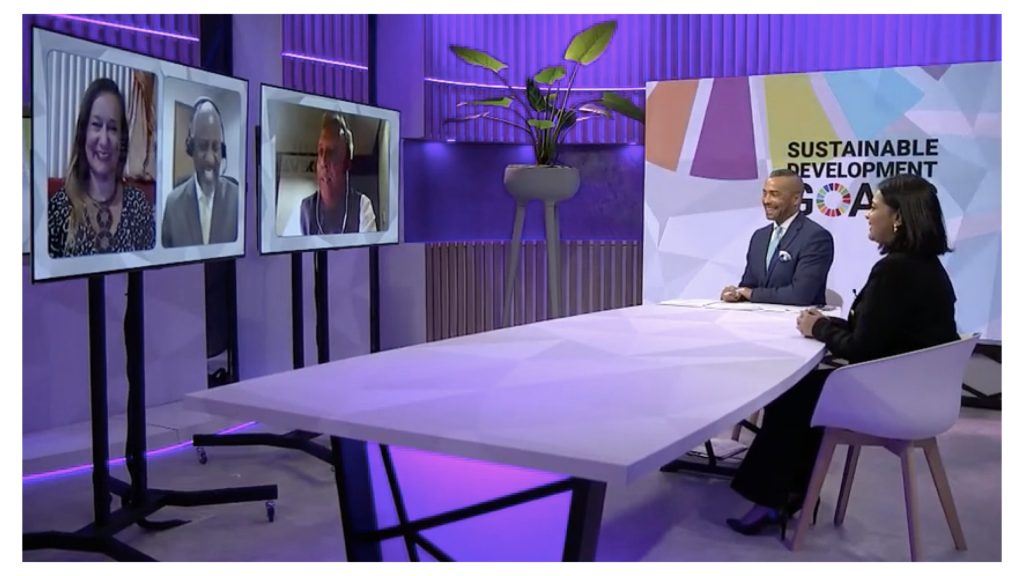
It is an exciting time for futures and foresight conversations. One reason for this: the way in which the United Nations is recognising the importance of futures, renewing its commitment to act for the long-term.
Our Common Agenda
The UN Secretary General’s report, Our Common Agenda, called for–among other proposals–the establishment of a Futures Lab, the appointment of a special Envoy for Future Generations, and the publication of a Declaration on Future Generations.
This interest in futures thinking comes with a renewed focus on the SDGs. This has opened up an important discussion on how institutions can change to navigate the future. I was honoured to contribute to this conversation at the United Nations General Assembly, appearing on the SDG Moment closing panel alongside Next Generations Foresight awards 2018 winner Pupul Bisht.
Creating impact
If we want to transform the way we deliver the SDGs, here are some ideas on where to start:
- Assess policies for their intergenerational impact. Leaders and policy-makers should start thinking about the cost and benefits both to those alive today and the next generations. This includes determining if a policy is fair, and what the long-term implications are. We have developed a tool to help policy-makers assess intergenerational fairness.
- Learn from governments globally on how they institutionalised integrating strategic foresight on a systemic level. The UAE, New Zealand, Singapore, Finland, Malaysia, South Africa, Rwanda, Bolivia are good examples. Our report on effective foresight by international governments can be found here.
- Open up national SDG planning as a unique space where the whole of government can collaborate long-term. This reframes the process so it becomes a National Strategy for Next Generations.
- Increase the collaborative element to include young voices and future-alert activists. We have developed a programme that supports participation in creating national strategies and a next generation foresight leadership programme.
The conversation about how we think about the future is changing. If we want governments and institutions to be fairer, more future-focused and genuinely inclusive to meet the SDG agenda, we have to increase its capacity for anticipatory governance. In particular, we need to expand its role as custodians for future and present citizens.
Email us to learn more about our work in futures and foresight.
